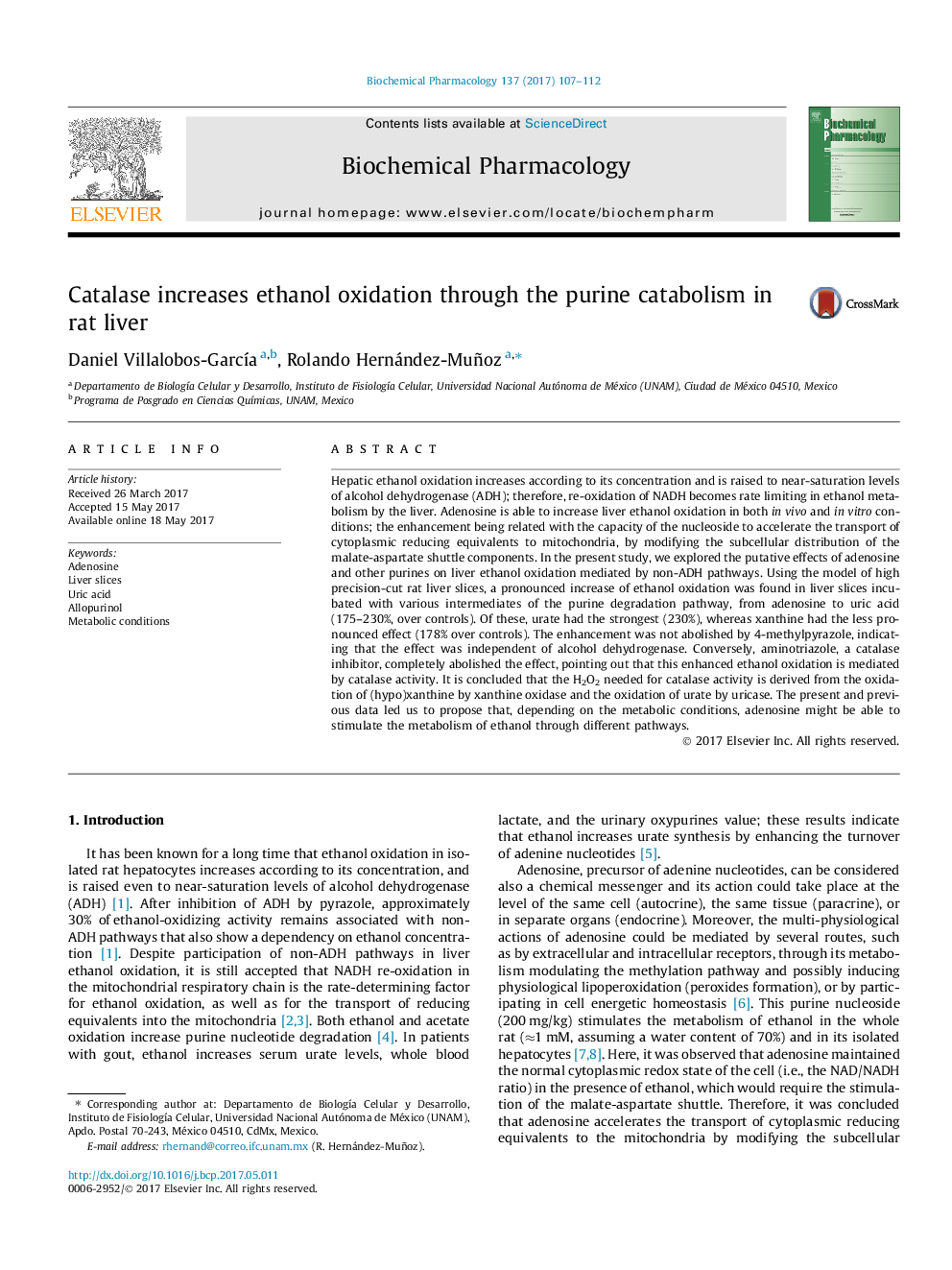| کد مقاله | کد نشریه | سال انتشار | مقاله انگلیسی | نسخه تمام متن |
|---|---|---|---|---|
| 5552164 | 1557876 | 2017 | 6 صفحه PDF | دانلود رایگان |
Hepatic ethanol oxidation increases according to its concentration and is raised to near-saturation levels of alcohol dehydrogenase (ADH); therefore, re-oxidation of NADH becomes rate limiting in ethanol metabolism by the liver. Adenosine is able to increase liver ethanol oxidation in both in vivo and in vitro conditions; the enhancement being related with the capacity of the nucleoside to accelerate the transport of cytoplasmic reducing equivalents to mitochondria, by modifying the subcellular distribution of the malate-aspartate shuttle components. In the present study, we explored the putative effects of adenosine and other purines on liver ethanol oxidation mediated by non-ADH pathways. Using the model of high precision-cut rat liver slices, a pronounced increase of ethanol oxidation was found in liver slices incubated with various intermediates of the purine degradation pathway, from adenosine to uric acid (175-230%, over controls). Of these, urate had the strongest (230%), whereas xanthine had the less pronounced effect (178% over controls). The enhancement was not abolished by 4-methylpyrazole, indicating that the effect was independent of alcohol dehydrogenase. Conversely, aminotriazole, a catalase inhibitor, completely abolished the effect, pointing out that this enhanced ethanol oxidation is mediated by catalase activity. It is concluded that the H2O2 needed for catalase activity is derived from the oxidation of (hypo)xanthine by xanthine oxidase and the oxidation of urate by uricase. The present and previous data led us to propose that, depending on the metabolic conditions, adenosine might be able to stimulate the metabolism of ethanol through different pathways.
233
Journal: Biochemical Pharmacology - Volume 137, 1 August 2017, Pages 107-112
